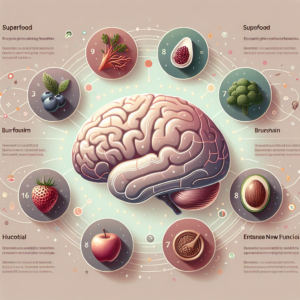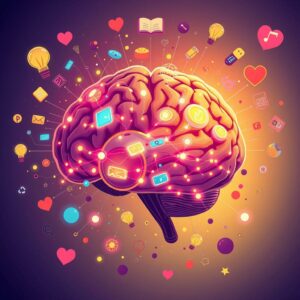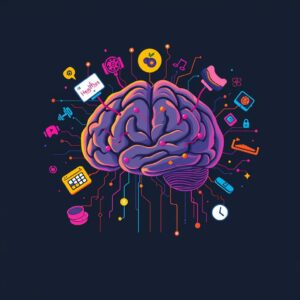
Boost Your Brain Power: A Comprehensive Guide to Enhancing Cognitive Function
Introduction
(H2)
In today’s fast-paced world, brain power is more important than ever. Whether you’re tackling complex problems at work, studying for exams, or simply trying to stay sharp as you age, optimizing your cognitive abilities can make a significant difference. This guide will walk you through actionable strategies to enhance your brain health, from sleep optimization and nutrition to mindfulness practices and continuous learning. Let’s dive in!
Sleep Optimization: Quality & Consistency
(H2)
Quality sleep is one of the most critical factors for maintaining brain health. Without adequate rest, cognitive functions like memory, focus, and decision-making suffer.
(H3) Prioritize Sleep Hygiene
- Stick to a consistent sleep schedule, even on weekends.
- Create a relaxing bedtime routine to signal your brain that it’s time to wind down.
(H3) Address Sleep Disorders
If you struggle with insomnia or other sleep issues, consult a healthcare professional. Treating underlying conditions can significantly improve your overall well-being.
Nutrition: Brain-Boosting Foods
(H2)
What you eat directly impacts how your brain performs. Incorporating nutrient-rich foods into your diet can fuel your mind and protect against cognitive decline.
(H3) Key Nutrients for Brain Health
- Omega-3 fatty acids (found in fish like salmon and walnuts).
- Antioxidants (from berries, dark chocolate, and green tea).
- B vitamins (in leafy greens and whole grains).
(H3) Avoid Processed Foods
Limit sugary snacks and refined carbs, which can lead to energy crashes and impaired brain function.
Hydration: Impact on Cognitive Function
(H2)
Dehydration has been shown to negatively affect attention, memory, and mood. Staying hydrated ensures your brain operates at its best.
(H3) Tips for Better Hydration
- Drink water throughout the day, not just when thirsty.
- Opt for herbal teas or infused water if plain water feels boring.
Physical Exercise: Enhancing Blood Flow
(H2)
Exercise isn’t just good for your body—it also boosts blood flow to the brain, promoting neurogenesis and improving mental clarity.
(H3) Types of Exercises That Benefit the Brain
- Aerobic activities like running or cycling.
- Strength training for improved focus and memory.
- Yoga or tai chi for balance and stress reduction.
Mental Exercises: Puzzles & Learning
(H2)
Challenging your brain regularly keeps it sharp and adaptable. Engaging in puzzles and lifelong learning stimulates neural pathways.
(H3) Activities to Try
- Solve crosswords, Sudoku, or jigsaw puzzles.
- Learn a new language or skill, such as playing an instrument.
Stress Management: Meditation & Relaxation
(H2)
Chronic stress can harm your brain over time. Managing stress effectively helps preserve cognitive function and emotional well-being.
(H3) Techniques for Stress Relief
- Practice meditation or deep-breathing exercises daily.
- Spend time in nature or engage in hobbies you enjoy.
Social Interaction: Building Connections
(H2)
Humans are inherently social creatures. Meaningful interactions with others stimulate the brain and foster emotional resilience.
(H3) Ways to Stay Connected
- Join clubs or groups aligned with your interests.
- Schedule regular catch-ups with friends and family.
Limiting Multitasking: Focus Techniques
(H2)
Multitasking may seem efficient, but it often leads to reduced productivity and increased stress. Focusing on one task at a time allows your brain to perform optimally.
(H3) Strategies for Improved Focus
- Use the Pomodoro Technique to break tasks into manageable intervals.
- Eliminate distractions by setting boundaries with technology.
Mindfulness Practices: Staying Present
(H2)
Mindfulness encourages awareness of the present moment, reducing anxiety and enhancing mental clarity. It’s a powerful tool for boosting brain power.
(H3) Getting Started with Mindfulness
- Begin with short daily sessions, gradually increasing duration.
- Focus on breathing and observing thoughts without judgment.
Technology Breaks: Reducing Screen Time
(H2)
Excessive screen time can strain your eyes and disrupt sleep patterns. Taking regular breaks from digital devices supports brain health.
(H3) Establish Boundaries
- Set specific times for checking emails or social media.
- Engage in offline activities during leisure hours.
Music & Creativity: Stimulating the Brain
(H2)
Listening to music or engaging in creative pursuits activates various regions of the brain, fostering innovation and problem-solving skills.
(H3) Ideas for Creative Expression
- Start journaling or painting to unleash your imagination.
- Listen to classical or instrumental music to relax and focus.
Supplements: Physician-Recommended Options
(H2)
While supplements aren’t substitutes for a balanced diet, they can complement your efforts to boost brain health. Always consult a doctor before starting any supplement regimen.
(H3) Popular Brain Supplements
- Ginkgo biloba for improved memory.
- Bacopa monnieri for enhanced cognitive performance.
Routine Building: Consistent Habits
(H2)
Building healthy routines ensures that brain-boosting practices become second nature. Consistency is key to long-term success.
(H3) Steps to Create Effective Routines
- Start small by incorporating one habit at a time.
- Track progress using apps or journals to stay motivated.
Continuous Learning: Lifelong Growth
(H2)
The brain thrives on novelty and challenge. Embracing lifelong learning keeps your mind agile and open to new experiences.
(H3) Opportunities for Growth
- Enroll in online courses or workshops.
- Read books across different genres to broaden your knowledge.
(H2)
Enhancing your brain power doesn’t happen overnight, but with dedication and consistency, you can unlock your full potential. Start implementing these strategies today—your future self will thank you! Share this article with friends and family who might benefit from these tips, and let us know which techniques work best for you in the comments below. Together, we can build stronger, healthier brains!


